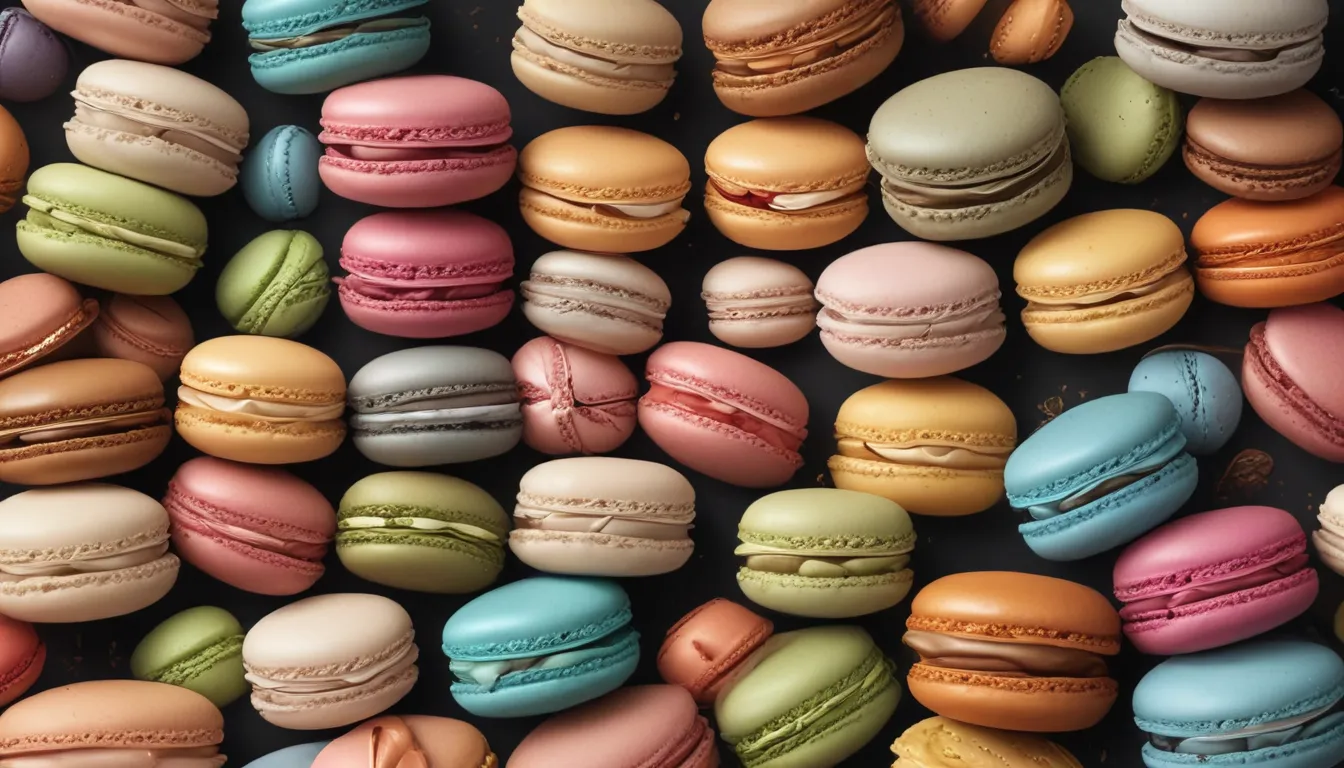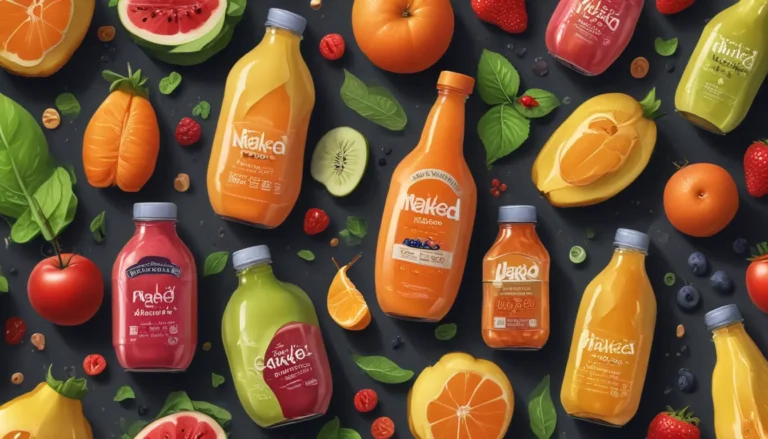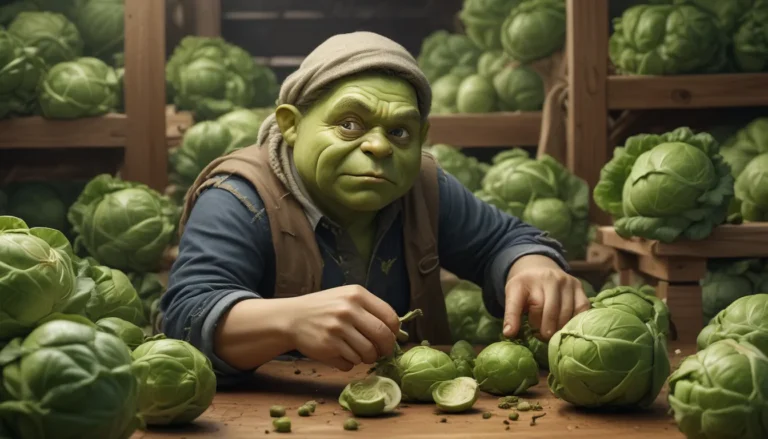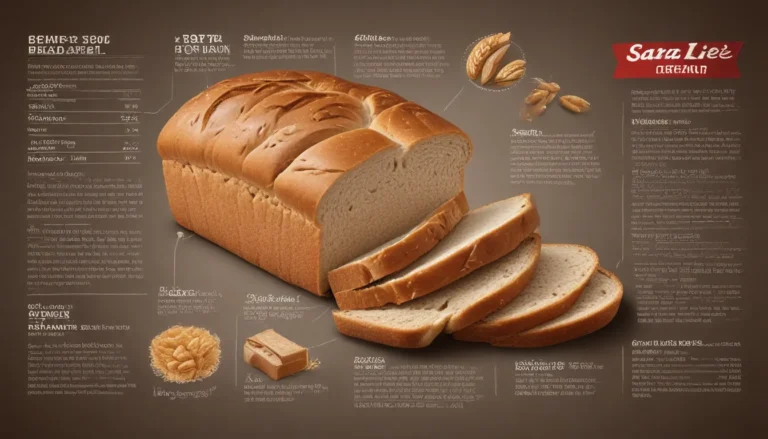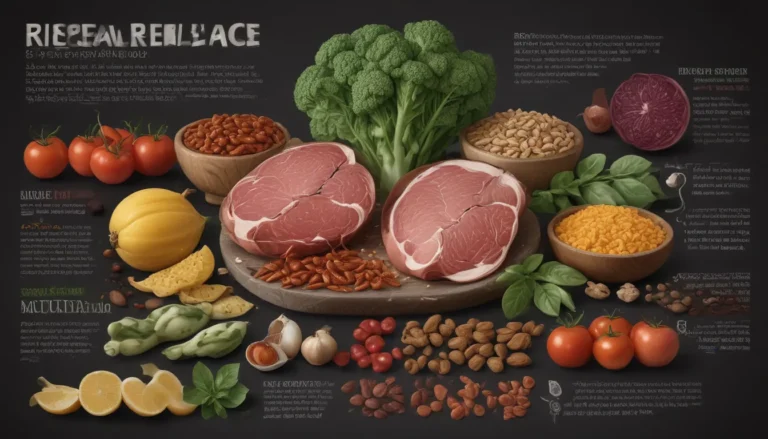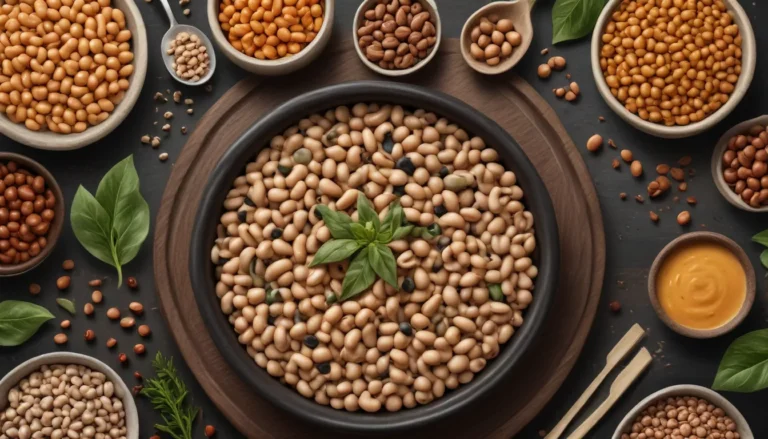The pictures in our articles might not always show exactly what the text is talking about. We use these images to make the article more interesting and eye-catching. They are there to add to the text, but not to replace it or show every detail.
Welcome to the enchanting world of macarons! These delicate and delicious French cookies have captured the hearts of dessert lovers worldwide with their rich history, vibrant flavors, and elegant appeal. Whether you're a seasoned macaron connoisseur or just beginning your journey into the world of these sweet delicacies, there are plenty of fascinating facts to discover that will deepen your appreciation for these exquisite treats. From their Italian origins to their intricate baking techniques, macarons have a fascinating story to tell. So, grab a cup of tea, sit back, and indulge in the delightful world of macarons!
The Origins of Macarons: A Sweet Italian Heritage
Contrary to popular belief, macarons were not born in France but actually originated in Italy during the Renaissance period. It wasn't until the 16th century that these delectable treats made their way to France and became synonymous with French elegance and luxury.
A Rainbow of Colors: The Visual Appeal of Macarons
One of the most captivating features of macarons is their vibrant array of colors. From soft pastels to bold hues, macarons come in a rainbow of shades that make them a feast for the eyes as well as the taste buds.
The Perfect Texture: Crisp Exterior, Chewy Interior
Achieving the ideal texture of a macaron requires skill and precision in the baking process. A perfect macaron boasts a delicate, crisp shell on the outside and a soft, chewy center that melts in your mouth with every bite.
Gluten-Free Indulgence: A Sweet Treat for Everyone
Good news for those with gluten intolerances or following a gluten-free diet - macarons are typically made with almond flour instead of regular flour, making them a delicious indulgence that can be enjoyed without worry.
French Meringue Magic: The Art of Macaron Making
Creating macarons involves whipping egg whites and sugar into a stiff meringue that is then delicately folded into almond flour and powdered sugar to form the batter. This intricate process is crucial in achieving the signature light and airy texture of macarons.
A Taste of Luxury: The Legacy of Ladurée
The iconic Ladurée bakery in Paris played a significant role in popularizing macarons and elevating them to a symbol of elegance and luxury. Their exquisite creations have attracted visitors from around the globe to indulge in the sweet sophistication of macarons.
Delicate Delights: A Short Shelf Life
Unlike many other desserts, macarons have a relatively short shelf life and are best enjoyed within a few days of being made to savor their optimal taste and texture. Their delicate nature adds to their allure as a special treat to be savored.
Precision and Practice: Mastering the Art of Macarons
Baking the perfect batch of macarons requires precise measurements, temperature control, and mastering the art of macaronage - the process of folding the batter just right. While it can be a challenging endeavor, the rewards of creating these delicate pastries are well worth the effort.
A Symphony of Flavors: Endless Possibilities
From classic flavors like vanilla and chocolate to more innovative combinations like lavender and pistachio, macarons offer a rich tapestry of flavors to suit every taste preference. The versatility of macarons makes them a delightful canvas for culinary creativity.
Macarons and Macaroons: Understanding the Difference
Despite their similar names, macarons and macaroons are distinct pastries with unique characteristics. Macarons are almond-based cookies with a light and airy texture, while macaroons are typically coconut-based cookies with a more dense and chewy consistency.
From France to the World: The Global Popularity of Macarons
Once considered a French delicacy, macarons have transcended borders and gained immense popularity worldwide. These elegant treats can now be found in bakeries, cafes, and specialty shops in many countries, showcasing their universal appeal.
Cultural Icons: Macarons in French Celebrations
In France, macarons hold a special cultural significance and are often featured in celebrations such as weddings, birthdays, and holidays. Their presence adds a touch of elegance and sweetness to festive occasions.
Personalized Perfection: Customize Your Macarons
Macarons have become popular choices for special events like weddings and baby showers, as they can be customized with different colors, flavors, and personalized decorations. These customizable treats add a personal touch to any occasion.
Inspiring Creativity: Macarons as a Muse
The popularity of macarons has inspired a wave of macaron-inspired products, from ice cream flavors to scented candles and accessories. The allure of macarons extends beyond the plate, sparking creativity in various forms.
A Sweet Community: The Loyal Fans of Macarons
Macarons have cultivated a dedicated fan base of dessert enthusiasts who appreciate and celebrate these delicate treats. From collecting macarons to creating unique recipes, macaron lovers share a passion for these exquisite confections.
Versatile Elegance: Macarons in Culinary Creations
While delightful on their own, macarons can also be incorporated into other desserts such as cakes, ice creams, and parfaits, adding an extra touch of elegance and flavor to a wide range of culinary creations. Their versatility makes them a delightful addition to any sweet masterpiece.
Indulge in the Delightful World of Macarons
In conclusion, macarons are not just desserts; they are a journey through history, tradition, and creativity. From their humble beginnings to their global popularity, macarons continue to enchant and delight taste buds around the world. With a diverse palette of flavors and endless possibilities for customization, macarons offer a sweet escape into a world of elegance and indulgence.
FAQs: Your Guide to Macaron Knowledge
- What are macarons? Macarons are delicate French pastries made with almond flour, egg whites, and sugar, featuring a crisp exterior and a soft, chewy interior.
- Are macarons and macaroons the same? No, macarons are meringue-based cookies with a light texture, while macaroons are coconut-based cookies with a denser consistency.
- Can macarons be made at home? Yes, with precision and patience, macarons can be made at home following a carefully crafted recipe and baking process.
- How long do macarons last? Macarons are best enjoyed within a few days of being made, stored in an airtight container in the refrigerator for optimal freshness.
- Do macarons contain gluten? Most macarons are traditionally gluten-free, made with almond flour instead of wheat flour, but always check for potential allergens.
- What is the best way to eat macarons? Savored with small bites to enjoy the flavors, macarons can be enjoyed sandwich-style or one shell at a time.
- Can macarons be frozen? Yes, macarons can be frozen for future enjoyment by storing them in an airtight container or freezer bag.
- Are macarons suitable for nut allergies? Macarons contain almond flour and are not suitable for those with nut allergies; always verify ingredients before consumption.
Explore the enchanting world of macarons and indulge in the sweet sophistication of these delightful French treats. Whether you're a seasoned macaron aficionado or embarking on a new culinary adventure, let the allure of macarons captivate your senses and inspire your taste buds. Enjoy the journey through history, culture, and creativity as you savor the exquisite flavors and elegant charm of macarons. Bon appétit!
